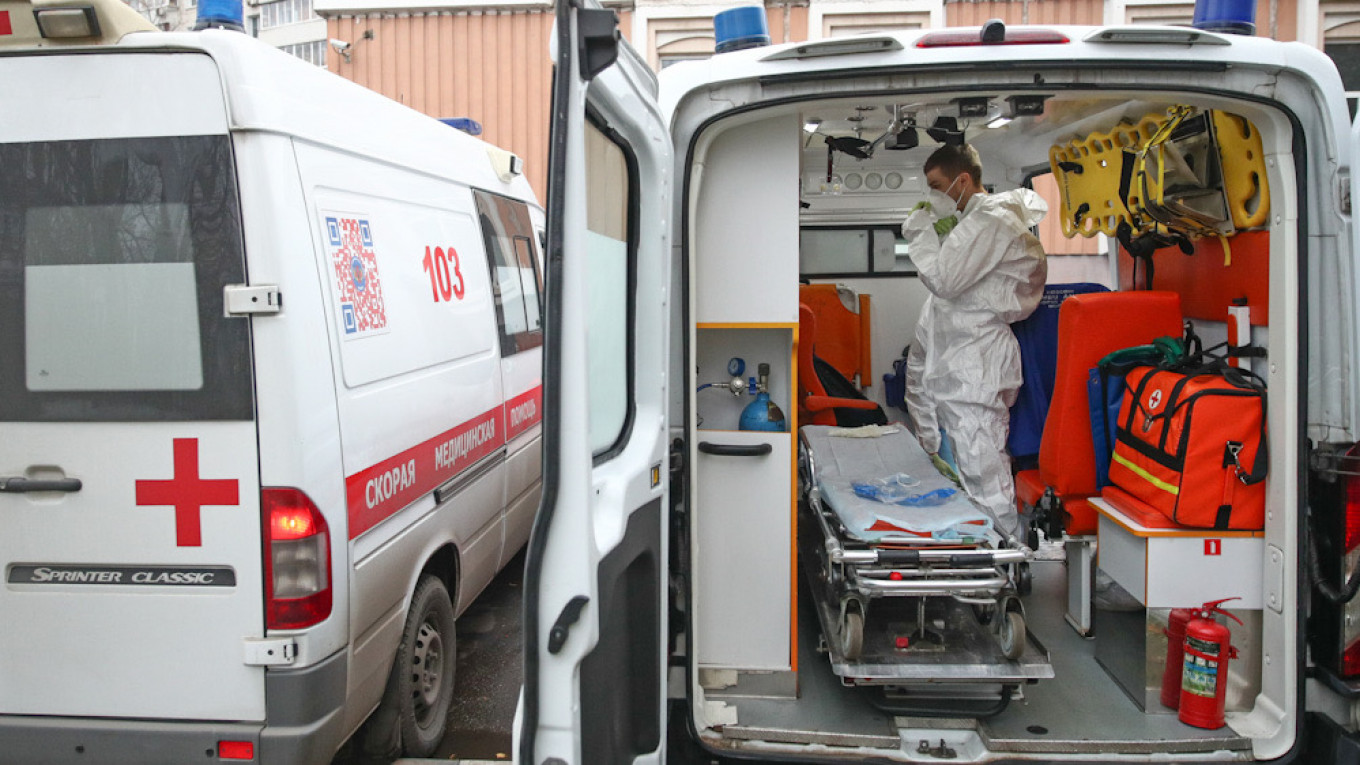While Moscow and St. Petersburg are the epicenters of Russia’s coronavirus outbreak, a new analysis claims that its residents are among those with the lowest risk of getting coronavirus within the country.
Residents of Perm and Voronezh, on the other hand, are among those most likely to contract the virus, with the risk of getting infected 15% higher than the national average, according to the research arm of Russia’s dominant lender Sber.
The Siberian cities of Irkutsk and Novosibirsk followed with 7% higher risk of contracting the virus, according to SberIndex research cited by the RBC news website.
Using a so-called symptom checker service, SberIndex named Moscow and St. Petersburg among the cities where residents are least at risk of Covid-19 infection.
Both cities set single-day records for new coronavirus infections Friday as the second wave of the pandemic that has affected more than 2 million Russians shows no sign of slowing down.
Other low-risk cities include the Pacific port of Vladivostok, southern Russia’s Krasnodar and Rostov-on-Don, as well as Kazan, Nizhny Novgorod, Samara, Ufa and Tyumen.
The cities of Khabarovsk, Krasnoyarsk, Chelyabinsk, Omsk and Saratov had risk levels on par with the national average.
The analysis is part of SberIndex’s large-scale study into how the Russian economy is handling the second wave of the Covid-19 pandemic.
It found that year-on-year consumer spending has fallen by 2.7%, with tourism and entertainment the hardest-hit industries while spending on medicine increased.
A record number of Russians have been infected and killed by Covid-19 in recent weeks as the second wave shifted from the capital to far-flung regions less equipped to manage the strain placed on their healthcare systems.
A Message from The Moscow Times:
Dear readers,
We are facing unprecedented challenges. Russia's Prosecutor General's Office has designated The Moscow Times as an "undesirable" organization, criminalizing our work and putting our staff at risk of prosecution. This follows our earlier unjust labeling as a "foreign agent."
These actions are direct attempts to silence independent journalism in Russia. The authorities claim our work "discredits the decisions of the Russian leadership." We see things differently: we strive to provide accurate, unbiased reporting on Russia.
We, the journalists of The Moscow Times, refuse to be silenced. But to continue our work, we need your help.
Your support, no matter how small, makes a world of difference. If you can, please support us monthly starting from just $2. It's quick to set up, and every contribution makes a significant impact.
By supporting The Moscow Times, you're defending open, independent journalism in the face of repression. Thank you for standing with us.
Remind me later.






